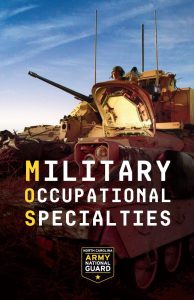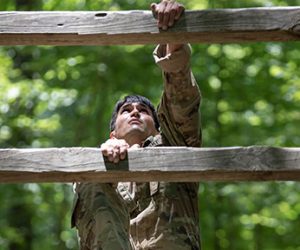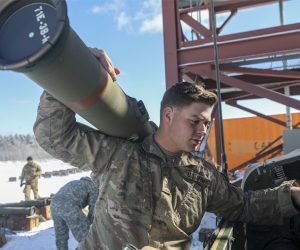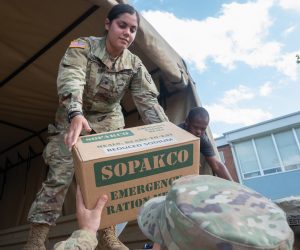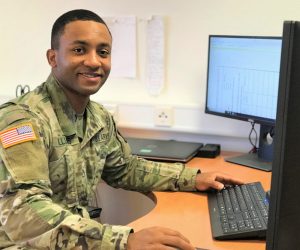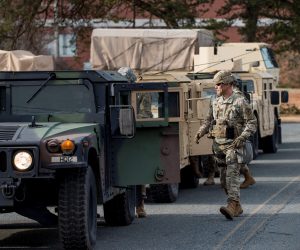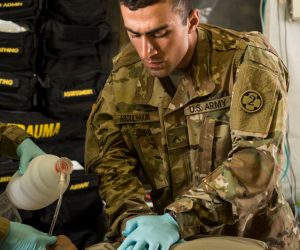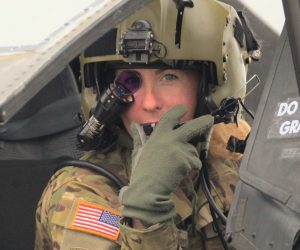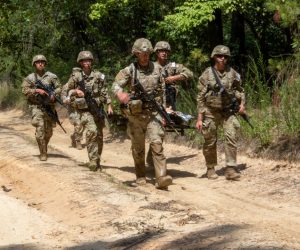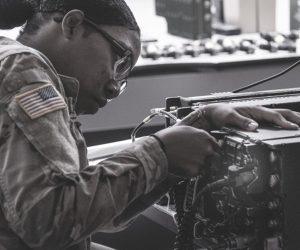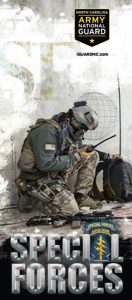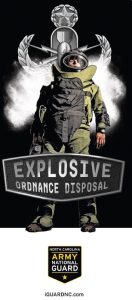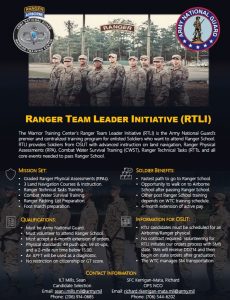Specialty Careers
Special Forces (SF) – Green Berets in the Army National Guard’s 19th and 20th Special Forces Groups are all highly intelligent, highly trained professionals capable of reaching objectives by land, water and air—armed to the teeth. They cross behind enemy lines undetected. They hunt down terrorists. They train guerrilla armies. Their lives exceed all standards and defy all conventions.
Requirements:
For current Soldiers:
- 20-36 years old
- Minimum rank of private first class through Staff Sergeant
- No more than 14 years in service prior to training, and minimum of 36 remaining in service after graduation
- Must qualify for Airborne or Ranger School
- Eligible for a secret security clearance
For those not currently serving:
- US Citizenship
- 20-32 years of age
- Meet medical and physical requirements
- ASVAB – Must score 110 or above in General Technical (GT)
- Eligible for a secret security clearance
For Officers Looking to transfer:
- Rank of First Lieutenant or Captain
- Reclass from current branch to Special Forces
- Defense Language Aptitude Battery (DLAB) score of 85 or higher
- Eligible for a top-secret security clearance
Sign up for tryouts: joinalguard.formstack.com/forms/guardsf_contact
Explosive Ordnance Disposal (EOD) – As an Explosive Ordnance Disposal Specialist, you’ll be the Army’s preeminent tactical and technical explosives expert. You’ll have the advanced training and critical skills needed to disable and defeat explosive devices and weapons of mass destruction. You’ll research and identify military weapons, assist leadership in the preparation and use of advanced robotics, dispose of hazardous objects, and perform missions in support of Army units worldwide, across all environmental conditions.
Ranger – As the Army’s premier infantry force, becoming a Ranger is an honor shared by a distinct few. You’ll specialize in conducting raids and assault missions deep inside enemy territory—a task only the best-trained can carry out in this branch of the elite Special Operations Forces. To become a Ranger is no easy task. You must go through grueling training to ensure you have the mental toughness, physical fitness, moral character, and motivation to endure the challenges you’ll face in the field.
Army Ranger Fitness and Workouts-
Ranger Assessment and Selection (RASP) This intense, eight week course has two phases:
- In Phase 1, you’ll go through physical and psychological tests, and be assessed on your strength of character and leadership ability. This phase includes a 12-mile ruck march with a 35-pound dry rucksack in full uniform, land navigation exercises, medical first responder tests, and a psychological screening.
- In Phase 2, you’ll prepare for Ranger duties by learning direct-action combat, airfield seizure, personnel recovery, marksmanship, and explosives.
- To succeed at RASP, it’s important to run, swim, and strength train since you will need to complete a 15-meter swim in full uniform, a 5-mile run in under 40 minutes, and a 12-mile march with a 35-pound ruck.
Officer Programs
Once you earn your commission, you’ll become a leader in the world’s most powerful Army. ROTC, OCS, West Point and Direct Commission are the programs that help Soldiers reach that goal. See which one makes the most sense for you.
Officer Candidate School
State OCS – The state OCS program is a 14 to 18 month course of instruction conducted from March to August the following year. The OCS Academy is located at the National Guard Training Center in Fayetteville, NC. Upon successful completion of OCS, you will become a commissioned officer in the Army National Guard.
Federal OCS – The Federal OCS program is an Active Army course at Fort Benning, Georgia. The program is conducted over a 12 week period. In order to qualify, applicants must have a bachelor’s or higher degree and be a current U.S. citizen. Applicants must be able to graduate and receive their commission prior to their 34th birthday.
Reserve Officers’ Training Corps (ROTC)
Army ROTC is a college elective that allows you to earn a commission straight out of college as a second lieutenant in the Army National Guard, the Army Reserve, and the Active Army. ROTC consists of both academic classes and hands-on training. These mental and physical challenges will help you succeed in college and beyond. Participation takes just a few hours per week, so it won’t interfere with other academic studies, sports, or your social life. You will learn about leadership and teamwork.
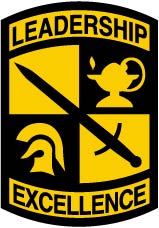
Warrant Officer
Warrant Officers are technical and tactical experts. They are the best of the best of the best in their field. Following the warrant officer path means you would be critical to administering and executing plans, as well as being the leader officers and enlisted personnel look to for advice and direction.
Specialized training prepares you to be a technical and tactical expert in your concentration and an effective leader, instructor and advisor to both subordinates and commanders who depend on you.
Direct Commissioning
A direct commission appoints civilians and service members with professional experience directly to an Officer rank. Civilians and service members who have special skills that are critical to sustaining military operations, supporting troops, health and scientific study may receive a direct commission upon entering the North Carolina Army National Guard. See below for direct commissioning opportunities:
Army Medical Department (AMEDD) – The North Carolina Army National Guard offers direct commissions in Army Medical Department (AMEDD) specialties to qualified medical and dental professionals who possess special skills through education and employment experience. Opportunities may be available for Physicians, Physician Assistants, Nurses, Dentists, and those who are seeking a career in medical administration, logistics, and operations.
Chaplains – The role of the Army chaplain is to function both as religious leader and staff officer. Chaplains are drawn from the vast expanse of faith groups represented in our nation. The chaplain directly performs the religious rites and services of his or her distinctive faith group while at the same time providing for the religious freedom of all our soldiers. Beyond the scope of religious support, the chaplain plays a leading role in the support of family programs such as Strong Bonds and Resiliency.
Judge Advocate General (JAG) – JAG Corps officers investigate, prosecute, and defend those charged with crimes in the military, provide legal advice for Soldiers and work with international contracts. As an officer in the JAG Corps and a practicing attorney or judge, your responsibilities will cover a wide range of practices including military law, criminal prosecution, international law, and legal assistance, both in the U.S. and abroad.

